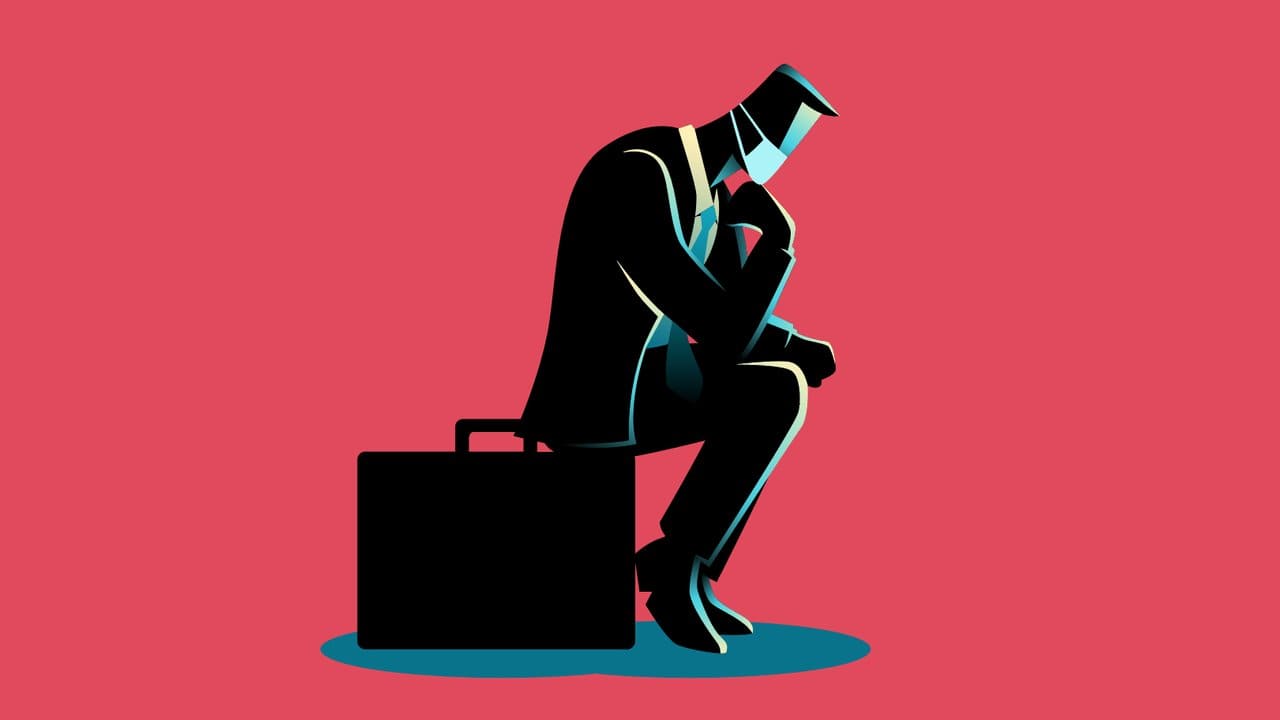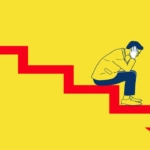Do Not Let a Setback Get You Down
If you want to become a winning trader, you must be willing to face loss after loss without letting it get you down. Upon facing a loss, our first inclination is to feel disappointed, but how you react emotionally is merely a matter of how you look at matters. If you go in with unrealistically high hopes, you’ll feel devastated when you encounter a setback. If you expect a setback here and there, however, you’ll feel at ease and ready to bounce back quickly when you’re knocked down.
Babe Ruth struck out over 1000 times on his way to setting the home run record. A top-notch salesperson may make a sale on only one out of ten cold calls. And a winning trader can come out ahead even if the majority of trades executed are losers. It’s daunting to think about it, but you may see many more failures than successes on your way to becoming a seasoned, master trader.
Seasoned traders know how to take losses and setbacks in stride. They don’t mull over past defeats or trading losses. They see a setback as an opportunity to hone their skills, grow, and improve. They examine what they did wrong, learn from their mistakes, and view a temporary setback as a launchpad from which to achieve higher future performance.
With proper risk management, you can win as few as 4 trades out of a dozen and still come out ahead. Rather than getting bogged down with self-doubt, regret, and defeat, winning traders use a “loss” as a motivator for change and improvement.
How can you afford to take loss after loss and be happy about it? It isn’t easy. If you are losing big over and over again, you’ll blow out quickly, and every loss will make you feel even more discouraged and beaten. To feel safe and at ease, you must believe that you can survive the learning curve. Risk management is vital for your survival. Limit your risk on any single trade. In addition, trade selectively. Only take setups where you can potentially make a large profit with relatively little risk. That’s still not enough, however. If you don’t improve, you’ll still end up in the red. You must feel that your skills are in constant flux to take losses in stride.
Market conditions and your mood can impact your trading performance.
If you trade in market conditions where you have trouble making a profit, you’ll feel stressed out and you will likely choke under the pressure. It’s better to trade under conditions where you are comfortable most of the time. Your priority should be on making enough winning trades to profit overall. Even then, you’ll still see more losing trades than winners. But once you feel secure that you can make profits, you’ll be able to explore new territory with little fear.
Once you know that you have a basic set of skills, you’ll be able to take losses in stride. So when you feel beaten, focus on the big picture. As long as you manage risk and continue to improve your skills, you’ll eventually master the markets. In the context of the big picture, losses here and there are just part of the learning experience. As long as you achieve profitability in the end, occasional losses are nothing to worry about.
Source: These insightful articles were originally written by an organization called “Innerworth”, which no longer exists.
Key Takeaways
- Resilience in the Face of Loss: Winning traders accept and bounce back from losses without letting them affect their emotional well-being. How you perceive setbacks determines how they impact you emotionally.
- Realistic Expectations: Having realistic expectations is crucial. Anticipating occasional setbacks helps you stay composed and ready to recover quickly.
- Learning from Setbacks: Seasoned traders view setbacks as opportunities to learn, grow, and improve. They analyze mistakes, make necessary adjustments, and see setbacks as stepping stones to higher future performance.
- Risk Management is Key: Proper risk management is vital for survival. Limiting risk on individual trades and being selective in choosing setups with potential profit and minimal risk contribute to long-term success.
- Mindset and Skills: Feeling secure in your ability to survive the learning curve is essential. Believing that your skills are in constant development helps you handle losses with confidence.
- Market Conditions and Mood Impact: Trading in comfortable market conditions reduces stress and enhances performance. Maintaining a positive mood is crucial for avoiding mistakes under pressure.
- Focus on Overall Profitability: Prioritize making enough winning trades to achieve overall profitability. Understanding that losses are part of the learning experience in the bigger picture helps maintain a positive outlook.
- Big Picture Perspective: Concentrate on the big picture. As long as you manage risk, continually improve skills, and achieve profitability over time, occasional losses are viewed as part of the learning journey and not a cause for undue concern.
Howdy!
If you’re here for the first time, let’s get introduced.
VRD Nation is India’s premier stock market training institute and we (Team VRD Nation) are passionate about teaching each and every aspect of investing and trading.
If you’re here for the first time, don’t forget to check out “Free Training” section where we have tons of free videos and articles to kick start your stock market journey.
Also, we got two awesome YouTube channels where you can continue the learning process.
Must-Read Articles
Do Not Let a Setback Get You Down
If you want to become a winning trader, you must be willing to face loss after loss without letting it get you down. Upon facing a loss, our first inclination is to feel disappointed, but how you react emotionally is merely a matter of how you look at matters. If you go in with unrealistically high hopes, you’ll feel devastated when you encounter a setback. If you expect a setback here and there, however, you’ll feel at ease and ready to bounce back quickly when you’re knocked down.
Babe Ruth struck out over 1000 times on his way to setting the home run record. A top-notch salesperson may make a sale on only one out of ten cold calls. And a winning trader can come out ahead even if the majority of trades executed are losers. It’s daunting to think about it, but you may see many more failures than successes on your way to becoming a seasoned, master trader.
Seasoned traders know how to take losses and setbacks in stride. They don’t mull over past defeats or trading losses. They see a setback as an opportunity to hone their skills, grow, and improve. They examine what they did wrong, learn from their mistakes, and view a temporary setback as a launchpad from which to achieve higher future performance.
With proper risk management, you can win as few as 4 trades out of a dozen and still come out ahead. Rather than getting bogged down with self-doubt, regret, and defeat, winning traders use a “loss” as a motivator for change and improvement.
How can you afford to take loss after loss and be happy about it? It isn’t easy. If you are losing big over and over again, you’ll blow out quickly, and every loss will make you feel even more discouraged and beaten. To feel safe and at ease, you must believe that you can survive the learning curve. Risk management is vital for your survival. Limit your risk on any single trade. In addition, trade selectively. Only take setups where you can potentially make a large profit with relatively little risk. That’s still not enough, however. If you don’t improve, you’ll still end up in the red. You must feel that your skills are in constant flux to take losses in stride.
Market conditions and your mood can impact your trading performance.
If you trade in market conditions where you have trouble making a profit, you’ll feel stressed out and you will likely choke under the pressure. It’s better to trade under conditions where you are comfortable most of the time. Your priority should be on making enough winning trades to profit overall. Even then, you’ll still see more losing trades than winners. But once you feel secure that you can make profits, you’ll be able to explore new territory with little fear.
Once you know that you have a basic set of skills, you’ll be able to take losses in stride. So when you feel beaten, focus on the big picture. As long as you manage risk and continue to improve your skills, you’ll eventually master the markets. In the context of the big picture, losses here and there are just part of the learning experience. As long as you achieve profitability in the end, occasional losses are nothing to worry about.
Source: These insightful articles were originally written by an organization called “Innerworth”, which no longer exists.
Key Takeaways
- Resilience in the Face of Loss: Winning traders accept and bounce back from losses without letting them affect their emotional well-being. How you perceive setbacks determines how they impact you emotionally.
- Realistic Expectations: Having realistic expectations is crucial. Anticipating occasional setbacks helps you stay composed and ready to recover quickly.
- Learning from Setbacks: Seasoned traders view setbacks as opportunities to learn, grow, and improve. They analyze mistakes, make necessary adjustments, and see setbacks as stepping stones to higher future performance.
- Risk Management is Key: Proper risk management is vital for survival. Limiting risk on individual trades and being selective in choosing setups with potential profit and minimal risk contribute to long-term success.
- Mindset and Skills: Feeling secure in your ability to survive the learning curve is essential. Believing that your skills are in constant development helps you handle losses with confidence.
- Market Conditions and Mood Impact: Trading in comfortable market conditions reduces stress and enhances performance. Maintaining a positive mood is crucial for avoiding mistakes under pressure.
- Focus on Overall Profitability: Prioritize making enough winning trades to achieve overall profitability. Understanding that losses are part of the learning experience in the bigger picture helps maintain a positive outlook.
- Big Picture Perspective: Concentrate on the big picture. As long as you manage risk, continually improve skills, and achieve profitability over time, occasional losses are viewed as part of the learning journey and not a cause for undue concern.




















Leave A Comment